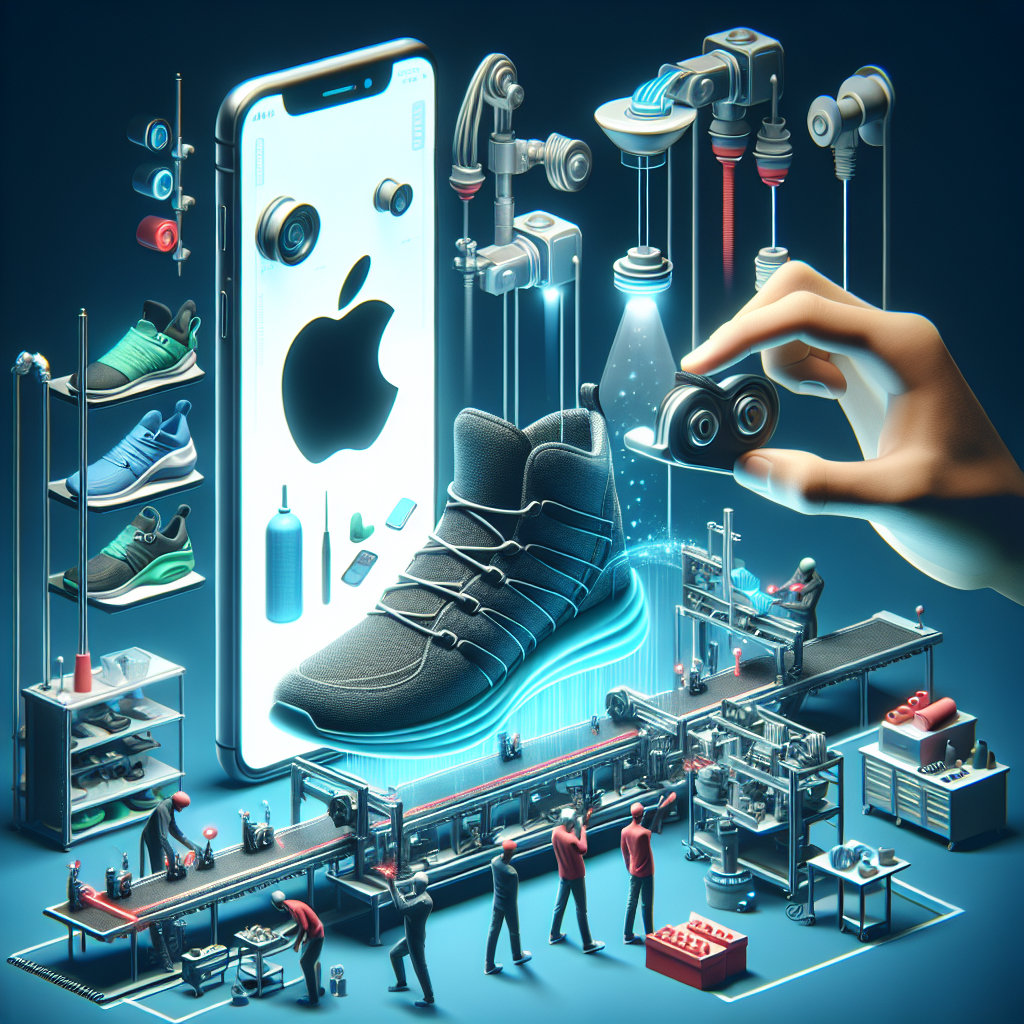How the iPhone Transformed an Iconic Australian Footwear Brand
In an era where digital innovation is quickly altering industries, R.M. Williams, one of Australia’s most renowned heritage brands, has taken a significant step into the future — swapping conventional retail systems for iPhones. The company, celebrated for its artisanal boots and leather goods, has enhanced its retail environment by incorporating Apple technology throughout its operations. This transition represents more than simply adopting modern technology; it’s a demonstration of how mobile advancements can revolutionize efficiency and customer interaction.
The Heritage of R.M. Williams: Where Tradition Meets Modernity
Established in 1932 by Reginald Murray Williams, R.M. Williams originated as a modest workshop in the Australian outback, crafting robust boots made to endure the harsh landscape. Over the years, the label has transformed into an internationally recognized name synonymous with quality and durability. Presently, R.M. Williams boasts over 60 locations in 15 countries and employs in excess of 1,100 individuals globally.
Despite its rich history, the brand has shown readiness to adapt, particularly in how it uses technology to improve customer engagement and streamline internal processes.
The Apple Edge: iPhones as Corporate Tools
The adoption of iPhones within R.M. Williams’ retail framework has yielded remarkable changes. As stated by Peter Ratcliffe, Head of Technology at R.M. Williams, this evolution has been “critical.” Employees across all stores now utilize customized mobile applications, like NewStore, on their company-issued iPhones to handle various store-related tasks.
Optimizing Store Operations
The implementation of iPhones has replaced cumbersome and frequently outdated point-of-sale (POS) systems. Retail associates can now:
- Monitor inventory in real time
- Identify specific products across different store locations
- Process custom orders immediately
- Accept payments from any spot in the store
This mobile-first strategy not only boosts operational efficiency but also enables staff to engage more with customers rather than being confined to checkout counters.
Enhancing Productivity
By deploying iPhones throughout retail outlets, employees save an estimated hour per day on average. This gained time is redirected toward more valuable customer interactions and more effective internal communication. From scheduling shifts to tracking performance indicators, virtually every task at the store level is now handled via the iPhone.
Customized Customer Experience: An Advantage in Competition
In the current retail environment, personalization takes precedence. R.M. Williams harnesses the capabilities of the iPhone to provide a customized shopping experience. With critical data and tools easily accessible, store associates can quickly offer detailed product insights, order history, and style suggestions.
Kyle Grimshaw, Head of Stores at R.M. Williams, noted the significance of this advancement: “Transitioning to iPhone was revolutionary for R.M. Williams. We can deliver an elevated level of customer service, which aids in fostering stronger connections with our clients.”
Training and Onboarding: Quicker and More Effective
One of the frequently underappreciated advantages of utilizing iPhones in retail is their impact on employee training. New employees at R.M. Williams can now view training videos, access sales resources, and engage in internal communications directly from their devices. This ease of access accelerates the onboarding process and ensures uniform training across all stores.
A Look Ahead at the Future of Retail
Apple has been advocating the iPhone as a business tool since 2012, and the experience of R.M. Williams serves as a prime illustration of its practical applications. The success of this digital shift may prompt other heritage brands to reconsider their operational strategies. Whether through Apple AirPods, wireless earbuds, or Bluetooth speakers, Apple continues to integrate itself into both personal and professional realms.
Conclusion
R.M. Williams’ transition from traditional POS systems to an entirely iPhone-integrated retail model exemplifies the impact of digital transformation in the retail industry. By adopting contemporary tools while honoring its legacy, the company has set itself up for ongoing international success. This initiative illustrates how mobile technology can not only simplify processes but also enhance customer engagement and empower staff — a model worthy of consideration for businesses of any size.
Frequently Asked Questions (FAQ)
How did R.M. Williams leverage iPhones to enhance customer service?
R.M. Williams provided its retail personnel with iPhones that feature the NewStore app, enabling them to check inventory, place custom orders, and accept payments while on the move. This increased mobility in-store facilitates more personalized interactions with customers.
What is the NewStore app and how does it function?
NewStore is a retail platform designed for iPhones that combines point-of-sale, inventory management, and order fulfillment into one application. For R.M. Williams, it has become the key tool for managing store operations, allowing real-time inventory monitoring and mobile checkout.
How much time do staff members save using iPhones?
Based on company estimates, the transition to iPhones results in approximately one hour of saved time per employee each day. This time can be redirected to enhancing customer interactions and other high-priority tasks.
Is this shift advantageous only for large retail corporations?
Not in the least. While R.M. Williams is a global brand, even small and medium enterprises can gain from mobile-first retail solutions. The adaptability and scalability of iPhone-integrated systems make them suitable for businesses of any size.
How are iPhones utilized for staff training?
iPhones provide new employees with immediate access to training videos, sales materials, and internal communications from their first day. This feature streamlines the onboarding process and guarantees a uniform training experience across all stores.
Will more brands likely emulate R.M. Williams’ approach?
Given the achievements of R.M. Williams and other companies highlighted in Apple’s “Apple at Work” series, it seems probable that more firms — especially in retail — will consider adopting similar mobile technologies to enhance both operational efficiency and customer satisfaction.
Where can I find more information about Apple products used in business?
You can learn more about how Apple devices such as Apple AirPods, wireless earbuds, and Bluetooth speakers are utilized in personal and professional environments by visiting Lonelybrand.